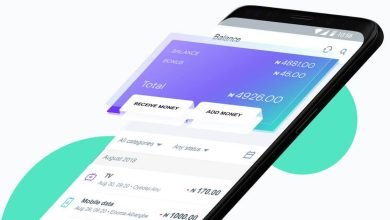IPPIS Loan: Am I Eligible for an IPPIS Loan?

As a civil servant in Nigeria paid through the government’s IPPIS system, you may sometimes find yourself strapped for cash before your next payday. If an unexpected expense pops up, IPPIS loans can provide a valuable source of financing to tide you over until payday.
In article, we’ll explain everything you need to know about securing an IPPIS loan.
What is IPPIS?
First, let’s quickly cover what IPPIS stands for and how it relates to civil service salaries in Nigeria.
IPPIS is an acronym for Integrated Payroll and Personnel Information System. This centralized system was implemented by the Nigerian government to streamline and standardize salary payments for all federal government employees.
Civil servants across federal ministries, departments and agencies are required to be enrolled in the IPPIS system to receive their monthly pay. It aims to enhance efficiency and accountability in salary administration.
So, in essence, IPPIS is the sole payment platform through which over 700,000 civil servants receive their salaries.
An Overview of IPPIS Loans
IPPIS loans are a type of salary-backed loan available exclusively to civil servants on the IPPIS payroll system.
As the name suggests, these loans are tied directly to your IPPIS salary payments. The loan repayments are automatically deducted from your IPPIS salary each month.
Banks and other lending institutions offer IPPIS loans to help civil servants facing cash shortfalls meet urgent financial needs before their next official payday.
The loans provide access to emergency funds to cover unexpected expenses that pop up during the month. This can help you avoid late fees or defaulting on obligations.
Some key advantages of IPPIS loans for civil servants include:
- Many lenders promise approval and disbursement within 24 hours
- Hassle-free application with basic eligibility documents
- Loans are unsecured, so your assets are not at risk
- Monthly deductions directly from your IPPIS salary
However, it’s wise to also weigh the costs before taking out an IPPIS loan. Interest rates are often higher than for traditional bank loans.
Am I Eligible for an IPPIS Loan?
To qualify for an IPPIS loan, you must meet a few basic criteria:
- Currently employed as a civil servant under the IPPIS payroll
- Receiving regular monthly salary payments via IPPIS
- Have a consistent minimum net monthly income (typically ₦30,000-₦100,000 depending on lender)
- Provide a valid BVN, means of ID, and employment verification letter
As long as you meet these requirements, you will likely be approved for an IPPIS loan. The lender will assess your salary payments and existing debt level when determining your maximum loan amount.
How Do I Apply for an IPPIS Loan?
The application process for IPPIS loans is designed to be quick and hassle-free. Here are the typical steps:
- Search online for “IPPIS loans” and compare costs, terms, and customer reviews across a few trusted lenders.
- Ensure you have the necessary documents ready before starting the application.
- Complete the online application form with your personal and employment details.
- Upload scanned copies of your IPPIS info, salary slips, ID, and employment letter.
- The lender will inform you if approved within hours or 1-2 days.
- Review and electronically sign the loan agreement if you accept the terms.
- The approved loan amount gets deposited directly into your bank account swiftly.
From start to finish, expect the process to take anywhere from 24 hours up to one week depending on the lender.
Key Documents Needed to Apply
To complete the IPPIS loan application, have these documents handy:
- IPPIS number – This unique number identifies you on the payroll system.
- Salary pay slips – Recent pay slips as proof of your income.
- Employment letter – Formal letter verifying your civil service employment.
- Valid ID – National ID card, driver’s license, voters card, or passport.
- BVN – Your 11-digit Bank Verification Number linked to your account.
- Bank statement – Shows account details where the loan will be disbursed.
Providing complete and accurate details in your application enables swift processing and approval.
Understanding Loan Costs and Repayment Terms
While IPPIS loans offer convenience, it’s critical to understand the costs and repayment terms before borrowing:
- Rates typically range from 10-25% per annum, higher than regular bank loans.
- Some lenders charge a flat processing fee (e.g. ₦2,000).
- Usually a percentage of your monthly net salary, typically 30-50%.
- Most are payable over 3-12 months via salary deductions.
- Some lenders penalize paying off early, others don’t.
- Defaulting on repayment results in hefty late fees.
- Most IPPIS loans don’t require collateral since repayments are guaranteed via payroll.
Be sure to read the fine print and get clarification from the lender on any unclear terms before accepting the loan. A clear understanding of the costs enables you to budget the repayments into your salary.
Tips for Responsible Borrowing
To ensure an IPPIS loan helps rather than harms your financial situation, keep these tips in mind:
- Borrow only what you can comfortably afford to repay based on your disposable income.
- Have a plan for repaying the loan before you apply – don’t just wing it.
- If you already have existing loans, avoid over-borrowing as this exacerbates repayment difficulties.
- Treat the loan as a short-term solution and strive to build savings for emergencies.
- Look for lenders that offer more flexibility in case you hit repayment trouble down the line.
- Be prudent and maintain your loan repayment as a top financial priority each month.
Alternatives to IPPIS Loans
While IPPIS loans provide a fast financing option, also consider:
- Bank personal loans offer lower interest rates but undergo lengthy application process.
- Family loans. Interest-free financing from relatives can be arranged informally.
- Peer-to-peer lending. Borrow from a private lender via peer-to-peer lending platforms.
- Credit union loans. Member-owned cooperatives often provide accessible loan options.
- Employer advances. Some organizations grant salary advances in case of hardship.
- Payday loans. Higher fees but quick disbursal from fintech apps may be an option.
- Savings .With time and discipline, even small amounts add up for emergencies.
Conclusion
IPPIS loans can be a double-edged sword. On one hand, they provide quick access to emergency funds between pay cycles as a civil servant. However, stiff interest rates make them an expensive financing option if used irresponsibly or as a long-term solution.
Apply with caution, limit your borrowing to urgent needs you can repay in under 6 months, and have a solid plan for repaying the loan on time each month. With prudent use, an IPPIS loan can alleviate short-term cash crunches without derailing your overall finances.



